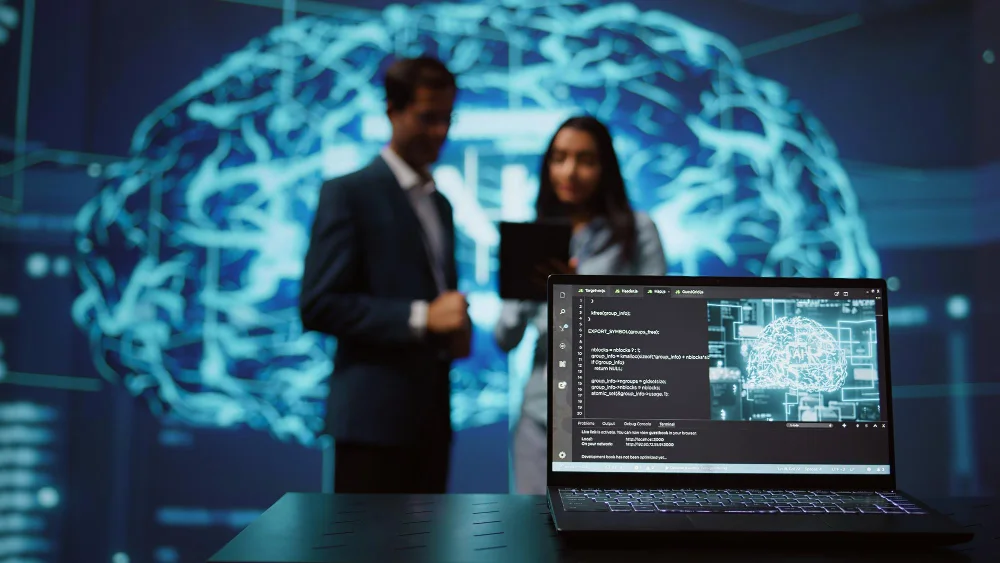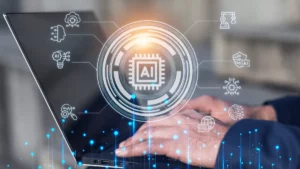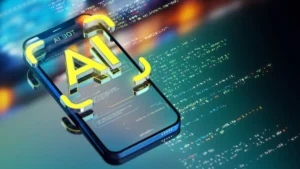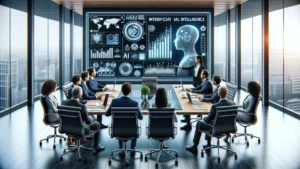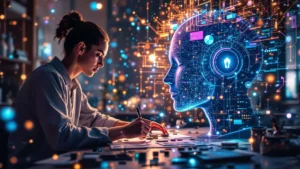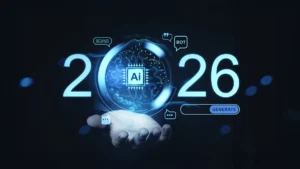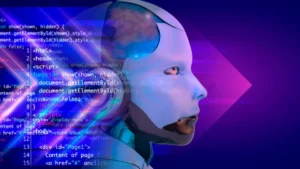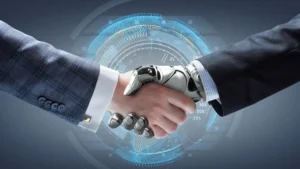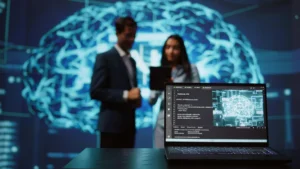In recent years, as artificial intelligence (AI) grows more advanced, the question “Is AI replacing coding?” has become a major topic in the tech world. Many developers feel both excited about new opportunities and concerned about what automation might mean for their future.
AI has changed how programmers work by speeding up tasks like code generation and debugging. Yet, it hasn’t replaced human logic, creativity, or problem-solving. Instead, it’s reshaping what it truly means to be a developer in the digital age.
How AI is Changing the Coding Landscape
Coding assistants, autocomplete systems, and generative models are no longer theoretical tools; they’re being used today. For example, tools like GitHub Copilot help developers write code faster by suggesting completions and generating functions, is reduces the amount of boilerplate and repetitive code, enabling developers to focus on more complex aspects.
The impact is visible in productivity metrics: some studies show that AI assistance can save 30-40 % of time in tasks like documentation or test generation. Rather than asking whether AI can replace programmers entirely, a useful angle is to ask how the nature of programming work is changing under AI-augmentation.
Why AI Cannot Fully Replace Coding (at Least Not Yet)
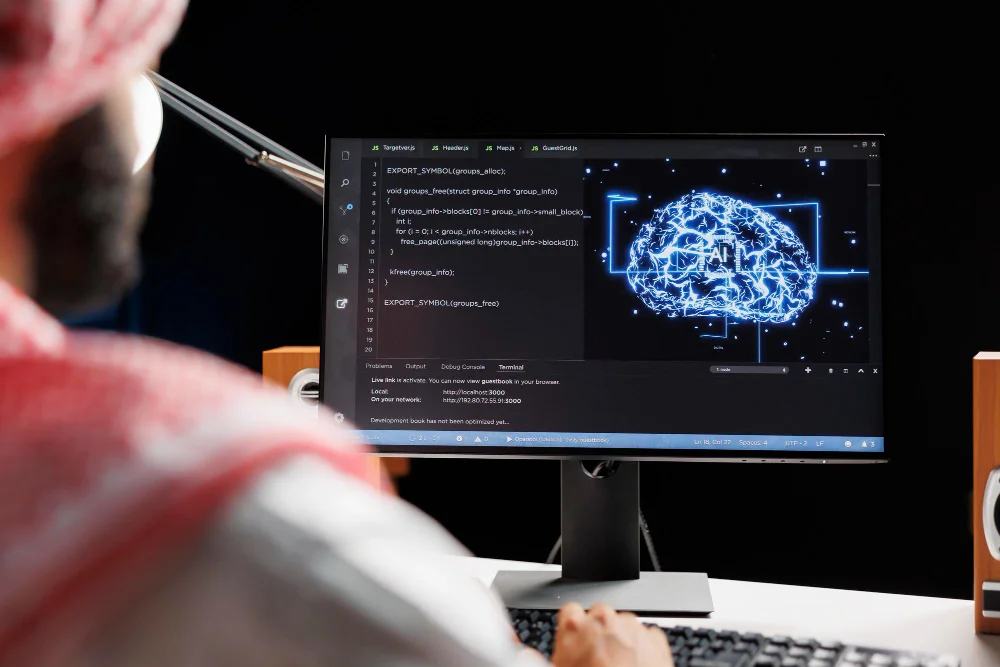
Although AI tools are powerful, there are important reasons why coding by humans remains essential.
First, coding is more than just writing syntax. It involves understanding business logic, architecture, system trade-offs and human context.
AI currently struggles with those higher-level judgments.
Second, human oversight remains critical for quality, security, maintainability and ethical concerns. For instance, organisations cautioned that replacing engineers entirely with AI can lead to serious vulnerabilities.
Here are some specific bullet points of challenges:
- AI-generated code may lack robustness or fail to account for edge cases and deep domain logic.
- Understanding user needs, domain context, and evolving requirements still depend heavily on human judgment.
- Debugging, system integration and long-term maintenance are areas where human experience remains vital.
- Ethical and security concerns (e.g., bias, malicious use, code quality) require human oversight.
Because of these factors, the conclusion from multiple expert sources is clear: AI is not going to replace coding jobs entirely anytime soon; instead, it will transform them.
How Developers Can Make AI an Ally, Not a Threat
As artificial intelligence becomes more deeply integrated into software development, one of the biggest questions is how developers can turn AI into an advantage rather than a competitor. The key lies in shifting from routine coding to strategic thinking, design, and collaboration.
Developers must evolve from code writers to problem-solvers who guide and supervise AI systems effectively.
1. Embrace AI Tools as Smart Assistants
Instead of fearing automation, developers should see AI tools as powerful assistants. These tools handle scaffolding, boilerplate, and repetitive coding tasks, allowing humans to focus on creative and complex challenges. By integrating AI into daily workflows, programmers can speed up delivery, reduce errors, and achieve more consistent results.
2. Strengthen Problem-Solving and Architecture Skills
The most valuable skill for modern developers is not syntax memorization but analytical thinking. Understanding how systems work together, designing scalable architectures, and solving real-world problems are skills AI cannot fully replicate.
Focusing on these areas ensures that human expertise remains central in the AI-driven development process.
3. Master Prompt Engineering
As AI systems rely on precise instructions, prompt engineering has become a crucial skill. Developers who learn to communicate effectively with AI through clear, contextual prompts can generate high-quality code and meaningful outputs. Mastering this interaction transforms AI from a simple generator into a reliable creative partner.
4. Cultivate Human-Centric Strengths
No matter how advanced AI becomes, human qualities like communication, teamwork, ethics, and critical thinking remain irreplaceable. Developers who emphasize these traits ensure that technology stays aligned with human values and business goals.
Ethical awareness and collaboration will separate great developers from those who depend entirely on automation.
5. The Mindset Shift: AI as a Power Tool
Ultimately, developers must treat AI as a powerful tool, not as a rival. Just as craftsmen use advanced equipment to produce better results, coders can use AI to elevate their craft. By focusing on guidance, supervision, and creativity, developers can thrive in the evolving landscape instead of being sidelined by it.
The Future of Coding Careers in the Age of AI
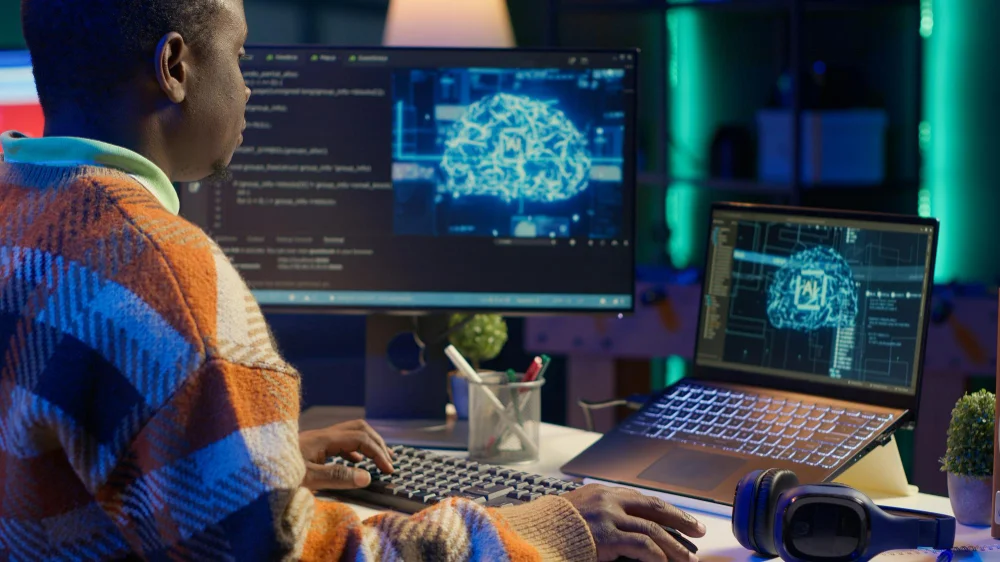
As AI continues to evolve, the future of coding careers will be defined by adaptation and specialization. Traditional roles focused purely on “writing code exactly as specified” are gradually transforming into more strategic and creative positions.
Developers will no longer just produce code; they will guide AI systems, oversee their outputs, and ensure alignment with human objectives and business needs. The shift is not about losing jobs but redefining them to meet the demands of an AI-enhanced world.
Emerging Career Paths and Skill Priorities
-
AI Oversight and Verification Roles: Developers will take charge of reviewing, testing, and validating AI-generated code to ensure accuracy, efficiency, and ethical integrity.
-
Platform and Infrastructure Builders: More professionals will focus on designing APIs, data pipelines, and development frameworks that support both human and AI collaboration.
-
Integration Specialists: Engineers will manage complex integrations between AI systems and legacy software, ensuring seamless interoperability.
-
Soft Skill Emphasis: Domain expertise, communication, and business understanding will become as critical as technical skills.
-
Evolving Entry-Level Positions: While repetitive or routine coding jobs may decrease, new entry-level paths will emerge around AI support, prompt engineering, and automation supervision.
-
Rising Demand for Advanced Developers: Professionals with strong analytical, architectural, and strategic abilities will remain highly sought after.
-
Opportunity for AI Integrators: Developers who learn to work with AI, leveraging it to enhance productivity, will enjoy new and higher-value opportunities.
Practical Strategies for Navigating the Transition
To stay competitive in the AI-driven landscape, developers and organizations must adapt proactively. Investing time in mastering AI coding assistants, understanding their limitations, and integrating them into daily workflows can significantly improve efficiency.
Prioritizing projects that depend on human creativity, intuition, and domain expertise ensures developers remain at the heart of innovation. Equally important is building software systems designed for AI collaboration.
For example, understanding how AI can document code effectively can greatly improve this collaboration process and efficiency in software development.
Realistic Outlook: Is AI Replacing Coding?
In the immediate future, the coding world will continue to evolve as AI becomes more capable and accessible. While automation will handle many repetitive or time-consuming tasks, human developers will remain vital for strategic, creative, and decision-making roles.
The focus is shifting from routine programming to innovation, oversight, and collaboration between human intelligence and machine efficiency.
Key Changes on the Horizon
-
Increased Automation: AI will continue to handle repetitive coding, testing, and documentation tasks with greater precision.
-
Human-Centered Work: Developers will focus on higher-value areas such as system design, user experience, and domain-specific problem-solving.
-
New Skill Demands: Organizations will increasingly seek programmers who can manage AI-augmented workflows and communicate effectively with intelligent tools.
-
Role Transformation: Some repetitive coding positions may shrink, but fresh opportunities will arise in AI integration, supervision, and ethical development.
-
Balanced Future: The question “Is AI replacing coding?” is best answered with a balanced Coding is evolving, not disappearing. AI is automating parts of it, while humans elevate the rest to new creative and strategic levels.
Balancing Optimism and Caution
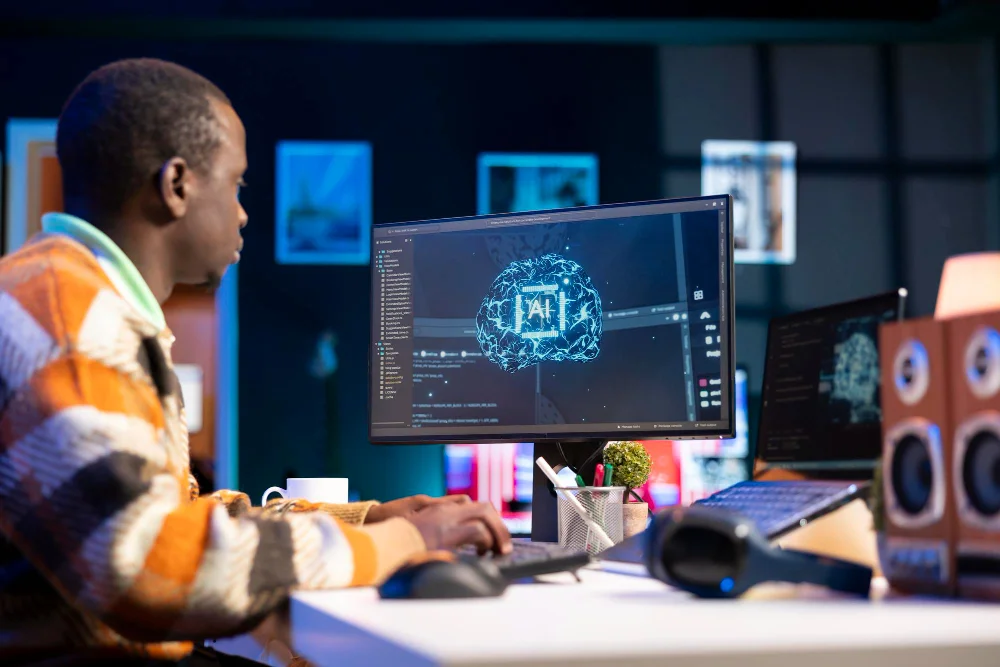
It’s essential to maintain a balanced perspective when considering AI’s growing influence on coding. On the positive side, AI can relieve developers from repetitive and time-consuming tasks, giving them more room for creativity and innovation.
Those who adapt to AI-driven tools and workflows can dramatically boost their productivity, efficiency, and career potential.
However, blind reliance on AI carries serious risks. Overdependence can result in fragile, insecure, or unmaintainable systems that compromise software integrity. Developers must also remember that skills limited to basic coding without contextual understanding may lose relevance.
Conclusion: Is AI Replacing Coding?
To wrap up: the era of AI-enhanced coding is already here. Asking “Is AI replacing coding?” is useful, but it’s only part of the story. The more important question is: How is coding changing? Developers who embrace higher-order skills, adapt to AI-collaboration, maintain human judgment and domain expertise will not only survive but thrive.
Coding as we knew it may shift, but coding in a new form, smarter, faster, human-plus-AI, is very much alive.

